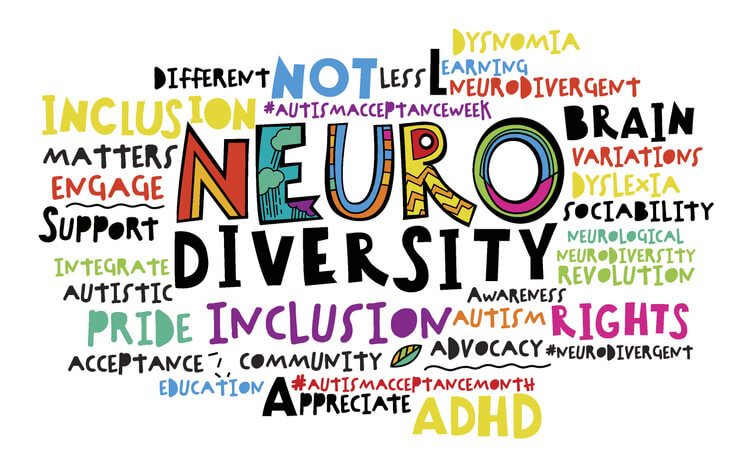When we discuss the broad umbrella of diversity, equity, and inclusion (DEI), invisible differences can often go overlooked. This is sometimes the case for many forms of neurodiversity, such as autism, ADHD, OCD, Tourette’s, anxiety and mood disorders, and so many more.
According to research by the Harvard Business Review, unemployment in neurodiverse groups can run as high as 80%. But when we actively include neurodiverse talent, we’re opening the door to a world of brilliant skillsets.
1: Creativity
The events industry is at its core a creative one, and we’d be shooting ourselves in the foot if we excluded neurodiversity – neurodiverse individuals have a reputation for creativity for a reason. Many people with conditions such as ADHD or dyslexia are renowned for their out-of-the-box thinking.
Having a more intuitive cognitive style and improved pattern recognition lens creates innovative ideas and flexibility, and thus more creative event planning.
2: Focus
Intense focus and hyper-fixation are often linked to ADHD and autism, and can lend a hand in the workplace by encouraging intense productivity and strong analytical skills. Concentrating deeply on tasks and problem solving can be incredibly beneficial during the most stressful points of the events cycle.
Note that both attributes (especially paired with perfectionism) can become draining for those that experience them, so do check in with your neurodiverse co-workers and employees regularly.
3: Organisation
Structure is often vital for neurodiverse individuals, such as those with autism or OCD. Improved organisational skills are also often actively worked on in therapy, resulting in many neurodiverse people having honed mastery of that invaluable skillset.
These staff members will thrive in manging event logistics and following structured processes, improving efficiency and streamlining operations. They’ll also demonstrate lessons in organisation for the rest of your team.
4: Communication
Many neurodiverse individuals communicate in a very direct way. By avoiding sugar-coating situations and euphemisms, this can foster clear and effective communication in teams – eliminating miscommunication in the high-pressure environment of running an event.
Neurodiverse people with conditions like anxiety or mood disorders have an increased level of empathy and understanding, which increase interpersonal skills and foster welcoming environments. Similarly, honed interpersonal skills are often in the toolkit of those who have undergone therapy.
Retaining the talent
After onboarding diverse talent, it’s crucial to retain them so they can flourish in our industry. Flexible workspaces work wonders for this. For example, implementing physical ‘quiet’ spaces where employees can work or wind down can mitigate the impact of highly stimulating environments for neurodiverse people – especially if you have a loud and happy office!
Additionally, remote and hybrid work options allow employees the freedom to work in an environment better suited to their needs. Such consideration will also encourage an inclusive culture. Equip your leadership and staff with the tools to learn about their neurodiverse co-workers, without burdening the individuals themselves with the responsibility of teaching them. Provide training for your staff, and specialised training for managers to support their neurodiverse team members.
Article supplied by Catie Owen.















